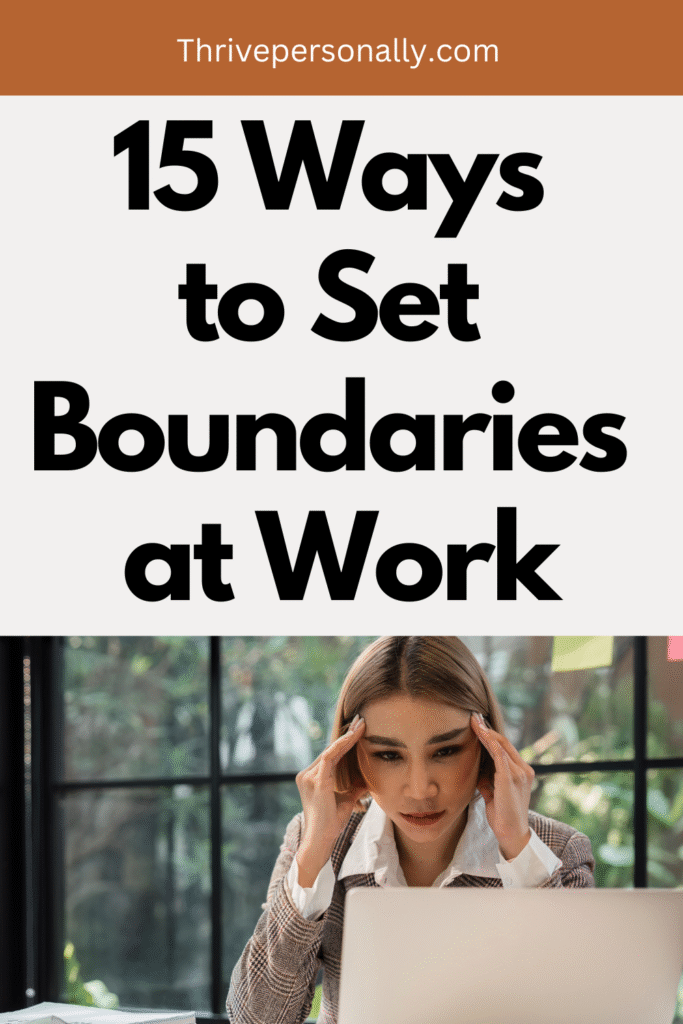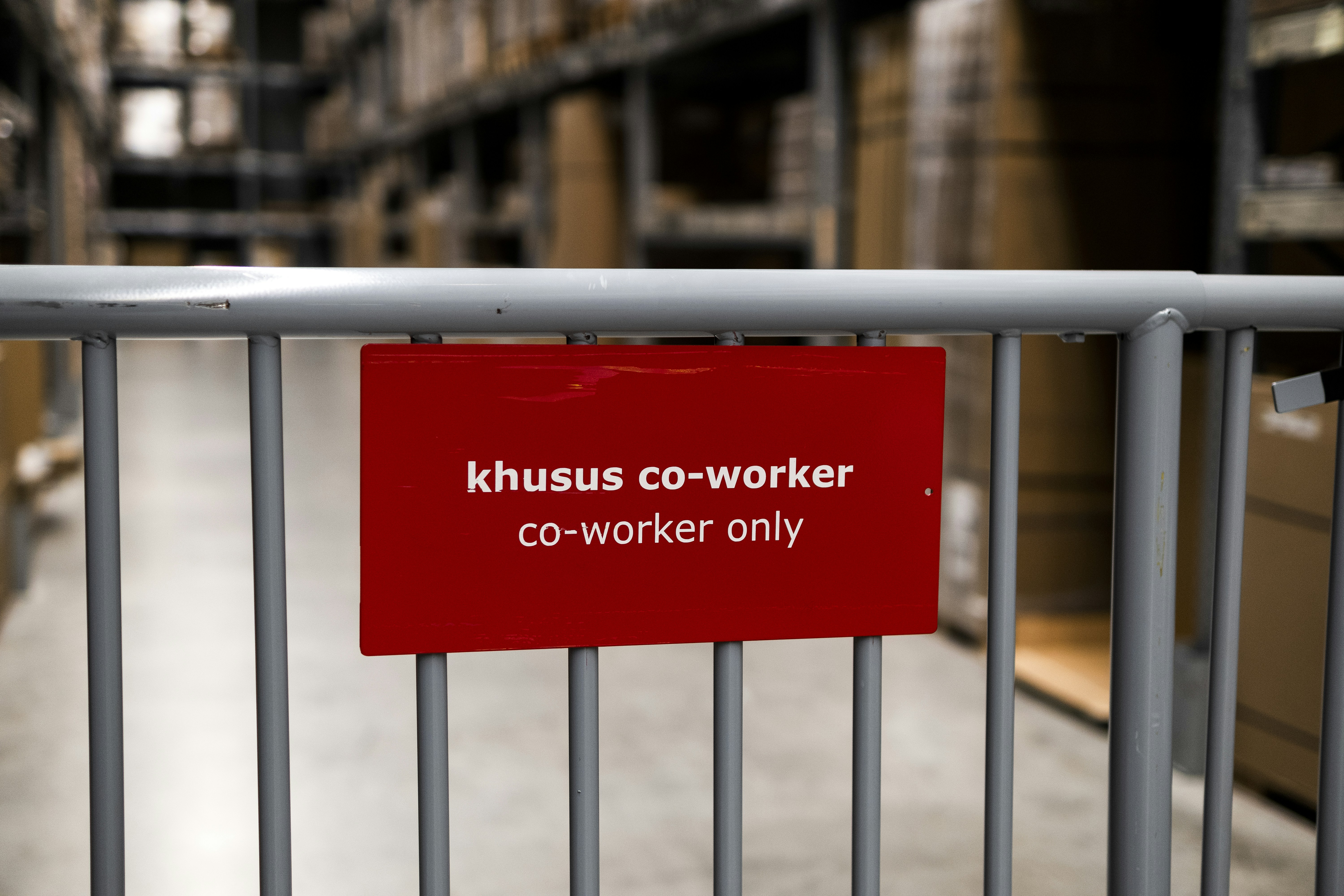Most people think work is just something you do to get paid. But it’s more than that. Work also includes how people treat you, how much time it takes, how much pressure you feel, and whether you’re respected. When those things are out of balance, work can become stressful, overwhelming, or even unhealthy. That’s where boundaries come in.
Boundaries at work aren’t about being rude or lazy. They’re about protecting what belongs to you—your time, your energy, your well-being. When you don’t set boundaries, people can cross lines without meaning to. Later, you may feel used, tired, or bitter because you didn’t speak up.
Many people fear setting limits at work. They worry they’ll lose their job, upset their boss, or be seen as difficult. But the truth is, healthy boundaries often lead to more respect. People know what to expect from you—and that makes you easier to work with.
15 Ways to Set Boundaries at Work
1. Know Your Job Description
You can’t set limits unless you know what your job includes—and what it doesn’t. A clear job description shows you what you’re paid to do and where your responsibilities stop. If someone asks you to take on extra work outside your role, your job description helps you push back.
Understanding your role keeps you from being pulled into tasks that aren’t yours. It also gives you solid ground when you need to say no.
Read also: 9 Effective Ways to Set Boundaries with Family
2. Speak Up When Your Workload Is Too Much
Work gets busy sometimes, and that’s normal. But when your tasks pile up too high or go on too long, they can hurt your health and your performance. If that happens, speak up. Talk to your manager about what’s going on and ask for changes or support.
Staying silent adds to your stress. Speaking up shows that you care about your work—and that you know your limits.
3. Set Clear Working Hours
Time is one of the strongest boundaries you can create. Decide when your workday starts and ends. If you work 8 a.m. to 5 p.m., don’t check your emails at 9 p.m. unless it’s something you agreed to do.
Let your team know your hours. If someone messages you outside that time, it’s okay to respond the next day. Your personal time matters just as much as your work time.
Read also: How to Set Boundaries to Protect Your Energy – 5 Tips
4. Don’t Say Yes to Everything
Helping at work is good—but saying yes to everything can leave you behind on your own tasks, feeling drained, and even angry. If a request gets in the way of your main work, it’s okay to decline.
Practice saying no kindly. Try, “I’d love to help, but I don’t have the time right now,” or “I can help after I finish this project.” Learning to say no protects your energy.
5. Don’t Skip Your Breaks
Breaks aren’t just for checking your phone. They help your mind and body reset. Don’t stay glued to your desk. Step outside if you can. Give yourself real time to rest and reset.
Skipping breaks or eating lunch at your desk sends the wrong message—to yourself and others—that you don’t need rest. But rest helps you stay sharp and focused. A short break now saves you from burnout later.
Read also: 10 Reasons Why Boundaries Are the Real Love Language
6. Ask for What You Need
If something at work makes your job harder—poor communication, unclear tasks, missing tools—speak up. You have a right to ask for what you need to do your job well.
Whether it’s more training, clearer instructions, or better resources, asking is not complaining. It’s being responsible and professional.
7. Keep Your Personal Life Private
It’s okay to be friendly with coworkers. But you don’t have to share everything. Some conversations can lead to gossip, tension, or discomfort. Decide what parts of your life you’re okay sharing—and what you’ll keep to yourself.
This boundary helps you stay calm and protects your space.
8. Don’t Let Others Dump Their Stress on You
Work can be stressful, especially in teams or customer-facing roles. But that doesn’t mean you have to carry everyone’s stress. If someone is always venting or putting their problems on you, it’s okay to set a line.
You can be a kind listener—and still protect your peace. It’s not your job to solve everyone’s problems.
9. Avoid Office Drama
Some workplaces have gossip, cliques, or power struggles. You don’t have to join in. If someone tries to pull you into drama, step back. Stay neutral. Stay professional.
This kind of boundary keeps you grounded. It helps you stay respected and out of messy situations.
10. Be Smart With Email and Messages
Your communication habits can also set boundaries. If you reply to emails at night or answer texts right away, people may think you’re always available.
Instead, check your messages at set times during the day. Turn off notifications when you’re off. Let people know when you’ll reply. This helps you and others respect your time.
11. Protect Your Mental Health
If work is messing with your sleep, mood, or peace, something needs to change. You might need to change your schedule, ask for help, or talk to HR about support options.
Your mental health matters. Work shouldn’t leave you drained at the end of every day.
12. Learn to Say No Kindly
You don’t have to be harsh to say no. You don’t need to choose between being polite or being strong. It might feel strange at first, but the more you do it, the easier it gets.
Respect yourself enough to protect your boundaries. When others see that, they’ll respect you too.
13. Limit Time With Toxic People
Some coworkers or managers are difficult. They might be rude, negative, or draining. You can’t always avoid them—but you can control how much space you give them.
Keep it short. Stay polite. Don’t let their attitude pull you down. You can’t control them—you can only control your response.
14. Use Your Vacation Days—Without Guilt
If your job offers vacation, sick days, or mental health days—use them. They’re part of your pay, not a gift.
Taking time off helps you recharge. It shows you value your own well-being. And it sets a good example for others too.
15. Seek Help When Things Don’t Improve
If you’ve set boundaries but things are still out of control, it’s time to get support. That could be a trusted coworker, someone in HR, or even a therapist.
Asking for help isn’t weakness. It’s one of the strongest things you can do. Sometimes, care is the boundary that reminds you: you don’t have to carry it all alone.
Final Thoughts
Setting boundaries at work isn’t about being cold or hard to work with. It’s about staying calm, clear, and kind—to others and yourself. Work challenges will always exist, but they shouldn’t steal your peace.
Boundaries help you stay strong. They let you do your best work without burning out. And they remind others that you deserve respect, time, and space—just like everyone else.
Save the pin for later


